By Film Noir Blonde and Mike Wilmington
The Film Noir File is FNB’s guide to classic film noir, neo-noir and pre-noir on Turner Classic Movies (TCM). All movies below are from the schedule of TCM, which broadcasts them uncut and uninterrupted. The times are Eastern Standard and (Pacific Standard).
Pick of the Week
“The Postman Always Rings Twice” (1946, Tay Garnett). Sunday, Dec. 14; 6 a.m. (3 a.m.). With Lana Turner, John Garfield, Cecil Kellaway and Hume Cronyn.
In the opening of “The Postman Always Rings Twice,” a sign reading “MAN WANTED” flashes at us twice. This man, John Garfield as it happens, is really wanted. But you wouldn’t know it from Lana Turner’s imperious entrance.
She drops a tube of lipstick, then deigns to let him pick it up and return it to her. He decides to let her get it herself. She’s unruffled and he’s hooked. In a way, these first few minutes of the film foreshadow the sexual power play between Garfield’s Frank and Turner’s Cora.
Read the full review here.
Friday, Dec. 12
4:15 p.m. (1:15 p.m.): “Kid Galahad” (1937, Michael Curtiz). In this archetypal boxing-gangsters crime drama, a bumpkin bellhop (Wayne Morris) with big natural prize-fighting talent, tangles with a wily promoter (Edward G. Robinson), a mean mobster (Humphrey Bogart) and a true-blue dame (Bette Davis). One of those ’30s movies that late-night TV audiences loved. Later remade by Phil Karlson as an Elvis Presley vehicle, “Kid Galahad” was a major prize winner at the 1937 Venice Film Festival.
Saturday, Dec. 13
12 p.m. (9 a.m.): “Gaslight” (1944, George Cukor). Set in foggy Victorian gas-lit London, this is the best of all the melodramas and noirs where a bad husband tries to drive his wife insane. With Ingrid Bergman, Charles Boyer, Joseph Cotten, Angela Lansbury and Dame May Whitty.
2 p.m. (11 a.m.): “Marnie” (1964, Alfred Hitchcock). With Sean Connery, Tippi Hedren, Diane Baker and Bruce Dern.
Sunday, Dec. 14
3:30 a.m. (12:30 a.m.): “Blowup” (1966, Michelangelo Antonioni). With David Hemmings, Vanessa Redgrave, Sarah Miles and The Yardbirds. Reviewed in FNB on June 19, 2014.
Tuesday, Dec. 16
4:15 a.m. (1:15 a.m.): “The Sea Wolf” (1941, Michael Curtiz). Jack London’s philosophical sea-going melodrama about vicious cargo-ship captain Wolf Larsen (Edward G. Robinson). Larsen is an egghead fascist and brutal autodidact who’s going blind and crazy as he toys with his crew and his passengers (John Garfield, Ida Lupino, Barry Fitzgerald and Alexander Knox).
With its noirish cast, writer (Robert Rossen) and director, this is probably the best of many film versions of London’s dark tale. The movie seethes with gangsterish menace and obvious parallels to then-contemporary WWII conflicts.
Wednesday, Dec. 17

“Side Street” was the second noir to feature young lovers played by Farley Granger and Cathy O’Donnell.
7:15 a.m. (4:15 a.m.): “Dial 1119” (1950, Gerald Mayer). Crisp little B-thriller about a barful of New York City types held captive by a maniac. With Marshall Thompson, Andrea King, Sam Levene and Keefe Brasselle.
1 p.m. (10 a.m.): “Mystery Street” (1950, John Sturges). A good, smart police procedural, set partly at Harvard University, with a homicide cop and forensic scientist (Ricardo Montalban and Bruce Bennett), trying to crack a murder with sexual overtones. Co-starring Elsa Lanchester, Sally Forrest, Jan Sterling and Marshall Thompson. Written by Sydney Boehm (“The Big Heat”).
4:15 p.m. (1:15 p.m.): “Side Street” (1950, Anthony Mann). The postman rings too often here too, as Farley Granger and Cathy O’Donnell, the two tenderly romantic, stunningly photogenic stars of Nick Ray’s love-on-the-run noir classic “They Live by Night,” are rematched for one of Anthony Mann’s best B-noirs. Granger is a financially strapped postal delivery guy who makes one slip and swipes money that turns out to be the property of some particularly murderous criminals. O’Donnell is his lovely and loyal wife. The stellar gallery of crooks, cops and bystanders lurking around them includes James Craig, Paul Kelly, Jean Hagen and Charles McGraw. The cast, Sydney Boehm’s taut script, the evocative New York City location photography (by Joseph Ruttenberg) and the full-throttle, exciting action set-pieces make this “B” special. (Also see our FNB Farley Granger piece on April 4, 2011.)
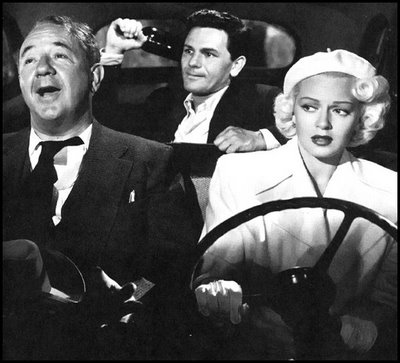
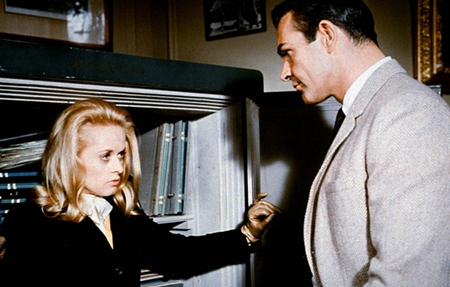





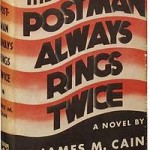
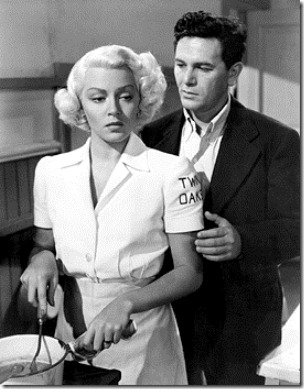
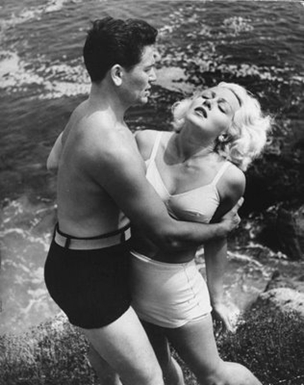

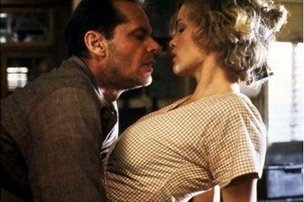
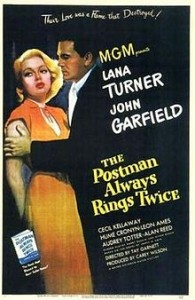
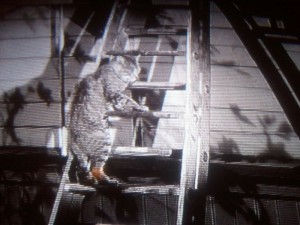
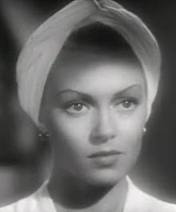





From FNB readers